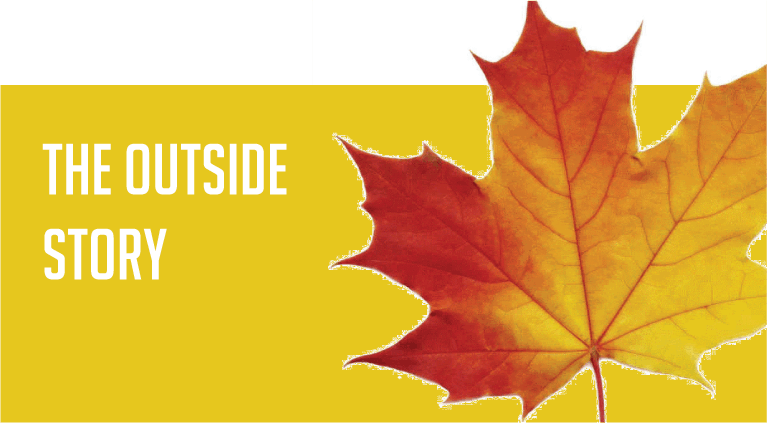By Declan McCabe
I have a pre-pandemic memory of a dozen high school students – armed with dipnets and wearing chest waders – emerging from a Saint Michael’s College van. Before masks and social distancing, my collaborators and I packed vans with students from Vermont, Massachusetts, and as far afield as Puerto Rico to monitor macroinvertebrates in Vermont streams. Because they are plentiful and respond quickly to environmental change, macroinvertebrates are great indicators of river and stream health.
Beyond indicating the health of a stream, however, macroinvertebrates are themselves essential parts of intact stream ecosystems. While some consider fish the most important animals in a stream, any successful angler will tell you that without macroinvertebrates, there can be no fish. Anglers depend on their quarry’s appetite for invertebrates, whether they use crayfish or hellgrammites to lure bass, worms for many fish species, or delicately cast flies for trout. Invertebrates are the links between the leafy base of the stream food web and the fish that feed herons, kingfishers, and people.
Macroinvertebrates are, simply put, invertebrates large enough to be seen without magnification. To keep sampling consistent between 55-year-old eyes and those of my young collaborators, we adopted the Vermont Department of Environmental Conservation’s standard: we washed all of the debris collected in our nets through 0.6 mm sieves; anything caught on the sieve was part of our sample.
There are more than 1,500 recorded species of caddisflies alone in North America. These caddisflies and other insect and non-insect macroinvertebrates range in sensitivity to pollutants — from the larvae of some non-biting midge species called “blood worms,” which dominate the nastiest of streams where most oxygen has been removed, to delicate stoneflies, mayflies, and other non-biting midges found only in the cleanest streams.
Researchers use macroinvertebrates to indicate overall river health because these multi-legged citizens of the deep are there year-round and provide evidence of many potential impacts over their life cycles. Eroded soil from construction sites, river banks, or elsewhere clogging the nooks and crannies where invertebrates live is a common impact that eliminates many species. This erosion is so common in our cities and towns that scientists call it “urban stream syndrome.” But the absence of sensitive species of invertebrates may also indicate less obvious water quality issues, such as a chemical spill long since washed downstream.
Scientists sample many local streams to measure what “typical” looks like in that specific area. Then they can compare a site of interest to the “reference conditions” averaged across several local sites. When streams are regularly monitored, a drop in macroinvertebrate diversity can be the first signal of water quality problems that merit additional investigation.
Sampling macroinvertebrates requires only a net and some inexpensive equipment. Importantly, researchers can garner high quality data just by counting the number of “types” – or families – they find, even without noting specific species. A greater number of types indicates cleaner streams. For example, water samples from Snipe Island Brook, a woodland stream in Richmond, generally contain about 40 macroinvertebrate families. Potash Brook in South Burlington drains a mixture of woodland, urban areas, and a farm and typically yields 26 families. And Burlington’s Centennial Brook, which drains several paved parking lots and an airport runway before entering the woods, hosts about a dozen families.
With patience, a microscope, and taxonomic keys, researchers identify macroinvertebrates to genus or even species. With only a magnifying glass and field guide, however, it is possible for any community scientist to quickly determine the macroinvertebrate’s order, and often its family. The best part of this approach is that you can sort your bugs in an ice cube tray in the shade and then return them alive to the water. It is very important not to move them between streams, because introducing a new species may upset the local balance or put an endangered species at risk.
When sampling macroinvertebrates, it is important to watch the weather. Rain-swollen streams can be unsafe to sample, and many macroinvertebrates will have gone deep into the stream bed to avoid the churning power of the flood. It’s best to allow some time for them to come back up within range of your net.
I’m looking forward to getting back into Vermont streams this year with excited students. We’ll do it safely, both from the point of view of water safety, and avoiding communicable diseases.
Declan McCabe teaches biology at Saint Michael’s College. His first book, “Turning Stones: Exploring Life in Freshwater” will soon be published by McDonald and Woodward. Illustration by Adelaide Murphy Tyrol. The Outside Story is assigned and edited by Northern Woodlands magazine and sponsored by the Wellborn Ecology Fund of the New Hampshire Charitable Foundation: nhcf.org.




